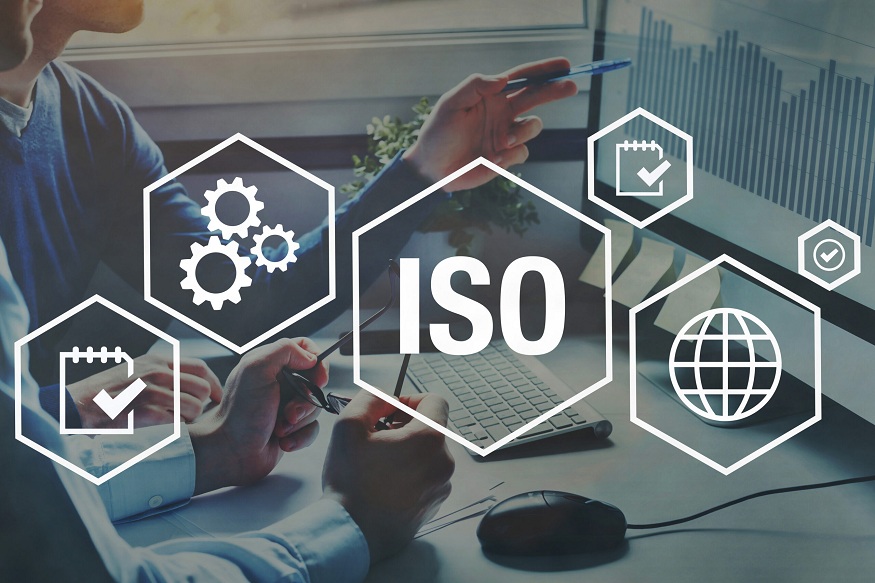
The selection of the right institute for specialized training requires thorough evaluation and proper decision-making. It can boost industry stand and professional growth if your institute is well chosen. What individuals are looking for in their pursuit of quality education leading to ISO Certified Training is robust curricula, expert guidance, and recognized accreditation. Overall, this results in a rewarding learning process with a systematic approach and clear objectives.
Accreditation and recognition
Accreditation and recognition are important indicators of credibility when evaluating an institute. The institute must be affiliated with reputable bodies and must hold the certificates of its quality standards. The institute’s credentials matching industry benchmarks and international practices is beneficial for prospective learners. Accreditation processes that are transparent reinforce trust and validate educational efforts. Confidence is given that graduates have skills that employers value with a strong record of recognized achievements. In the context of ISO certified training, the institute’s certification status is vital to ensure that its teaching methods meet rigid quality standards. Accreditation is a decisive factor in the shaping of a learner’s future prospects as it highlights the commitment of the institute to excellence, transparency and continuous improvement thereby building credibility in the professional market. Such accreditation doesn’t just guarantee quality, it also creates a lasting trust amongst learners.
Curriculum and training content
Evaluating the curriculum is a fundamental step when selecting an institute. Theoretical foundations and practical applications should form the basis of a well-structured curriculum so that it is aligned with the needs of the industry as it pertains to modern requirements. The institute’s commitment to quality education and professional development is reflected in the clear and comprehensive training content. The learning modules need to be updated regularly to reflect the new standards and practices. Syllabi are detailed, real-world case studies are used, and the sessions are interactive resulting in enhanced understanding and practical competence.
The curriculum should encompass internationally recognized standards which guide quality improvement in terms of ISO-certified training. For example, the incorporation of ISO 22000 Certification principles also ensures that students are made aware of Food Safety Management Systems and hence improve their technical expertise. The curriculum is balanced between theory and practical experience, making it a stepping stone to career advancement as well as operational excellence. Highly developed training content doesn’t only teach learners the basic skills they need, but it also builds confidence, innovation, and strategic problem-solving abilities across different sectors in professional environments.
Faculty expertise and experience
Expert instructors are a pillar of high-quality education. It is required for institutes to have faculty members with proven industry experience and academic excellence. We should see these engaging teaching methods, up-to-date knowledge, and practical insights that turn theoretical concepts into practice. Institute’s ability to deliver comprehensive learning outcomes can be evaluated by considering instructor credentials and industry achievements. ISO-certified training means that the faculty is trained according to current international standards and that the learners will get a balanced mix of theory and practice teaching.
A culture of excellence and continuous professional development is reinforced by faculty expertise, instilling confidence in students as they pursue their long term career goals in changing professional landscapes. Further, a rigorous evaluation of faculty performance and student feedback reconfirms that exceptional instructor quality is essential to superior learning outcomes, and therefore helps raise academic standards.
Infrastructure and learning environment
Key to effective knowledge acquisition are the physical and virtual learning environments. The institutes should have well-equipped facilities, modern technology and comprehensive resources for a variety of learning styles. An optimal infrastructure is dedicated classrooms, laboratories, libraries, and online platforms that facilitate interactive sessions and access to digital resources. Quality infrastructure fosters a conducive atmosphere for rigorous study and collaborative learning. ISO Certified training in a state-of-the-art setting places emphasis on practical exercises with real-world applications.
Student engagement and satisfaction are significantly enhanced by a modern environment and so it is an integral component of what a reputable institute offers. The learning experience is further enhanced by comprehensive support services and seamless integration of advanced technologies, which deliver precision and excellence in both academic and practical components. This robust environment has positive ramifications for long-term academic success.
Industry connections and practical exposure
A solid network in the industry is essential for translating classroom learning into practical expertise. Institutes should develop partnerships with leading organizations and offer real-world exposure. Workshops, internships and field visits help to bridge the gap between theory and practice, making employability better. Collaborative initiatives also help students get acquainted with industry trends and adapt accordingly to suit changing market demands. Training in practical modules incorporates ISO-certified training, indicating that theoretical principles are being applied in professional settings.
Such industry engagement gives learners real hands-on experience and networks that can come in handy when it comes to career advancement. In an era of rapid technological changes, it is still a core aspect for institutes aiming to produce job-ready professionals to have robust industry linkages. Practical learning is further enriched with comprehensive exposure to industry practices and mentorship that will enrich future career prospects in all sectors.
Post-training support and value
Post-training support is a critical element that helps in making the learning experience more valuable. Even after the training period, institutes should continue to provide ongoing resources, career guidance, and access to updated study materials. It provides continued support to learners to reinforce acquired knowledge and adapt to changing industry demands. Post training services such as alumni networks and refresher courses are key to sustaining long term professional growth. Follow up sessions embed ISO certified training principles, thereby ensuring that learners remain aligned with the evolving international standards.
A comprehensive support after training is essential in reinforcing the skills acquired and their practical application that will secure a successful career path. Post training initiatives are robust and contribute greatly to lifelong learning as professional development is constantly updated and relevant for continued success.
When it comes to choosing the right institute, it is important to do a careful analysis of accreditation, curriculum, faculty, infrastructure, industry engagement, and post-training support. This ensures a balanced and valuable educational journey through a systematic review of these aspects. Choosing the right institute can change the prospects of one’s career and practical expertise. Ultimately, thoughtful evaluation leads to a rewarding professional development experience that provides lasting benefits to every learner and pays in the long run.





